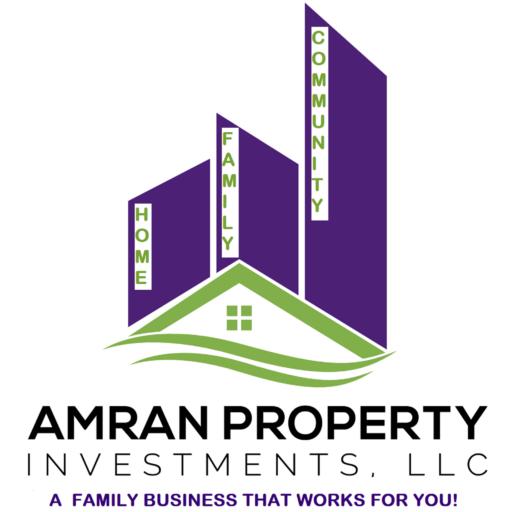Home sales usually fall into one of three main categories: traditional sales, short sales, and foreclosures. For buyers, each has pros and cons, though generally speaking the cheaper properties are short sales and foreclosures. But if you’re a buyer, you need to keep in mind that these properties are usually cheaper for a good reason. The best route for you depends on your financial situation and your goals, especially whether you’re buying the property live in or as an investment. Let’s take a look, then, at traditional sales vs. short sales and foreclosures in North Carolina.
Explore traditional sales, short sales, and foreclosures to make informed decisions for your home’s future. Visit familyhomeplace.com for more insights. Navigating the real estate market in Winston Salem can be a complex task, especially when it comes to understanding the difference between traditional sales, short sales, and foreclosures. Each type of sale comes with its own set of challenges and implications for homeowners. Knowing these differences is essential, not just for mitigating financial risks, but also for making informed decisions that affect both sellers and buyers. In this post, we’ll break down how each type affects your property’s value, your credit score, and the overall process.
For those facing financial difficulties, understanding these options can spell the difference between manageable debt and financial crisis. Traditional sales usually mean fewer impacts on your credit but could take longer. Short sales and foreclosures, while more immediate solutions, often come at a higher cost to your financial reputation. Explore familyhomeplace.com for deeper insights and guidance tailored for the Winston Salem market.
Understanding Traditional Sales
Becoming familiar with traditional sales is crucial for anyone looking to buy or sell a home. Whether it’s negotiations or understanding financial implications, you must navigate each step carefully to reach the best outcome.
What is a Traditional Sale?
A traditional sale refers to the standard process of buying or selling a home, where the seller lists the property on the market to attract potential buyers. The typical journey begins with choosing a real estate agent who will list your home on Multiple Listing Services (MLS) and other platforms.
Steps involved in a traditional sale:
- Listing: The property is listed on the market with professional photos, descriptions, and open houses.
- Negotiation: Once a buyer expresses interest, offers and counteroffers are made until an agreement on the price and terms is reached.
- Inspection and Appraisal: The buyer often gets an inspection and appraisal to ensure the property’s condition and value.
- Closing: If all conditions are satisfactory, closing papers are signed, mortgage funds are transferred, and the title is passed to the new homeowner.

Advantages of Traditional Sales
Choosing the traditional route offers various advantages that often outweigh alternatives like short sales or foreclosures:
- Market Value Pricing: Sellers typically receive a fair market value for their homes, reflecting each property’s true worth.
- Fewer Complications: Traditional sales usually involve fewer legal and financial complications, making the process smoother.
- Seller Control: The seller retains greater control over the terms of the sale, from selecting buyers to setting final prices.
Each of these benefits ensures that sellers experience a less stressful and more predictable home sale.
Challenges in Traditional Sales
While traditional sales have many advantages, they’re not without challenges:
- Market Fluctuations: The real estate market can be unpredictable. Prices may dip due to economic factors, making it harder to sell at desired prices.
- Property Maintenance: Homes might need repairs or upgrades to attract buyers, requiring additional time and investment.
- Time-Consuming: The entire process can take several months from listing to closing, requiring patience and sometimes resilience from the seller.
Timing the market and maintaining the property can be like walking a tightrope, but navigating these challenges effectively can lead to a successful sale. For more detailed insights into market trends, visit familyhomeplace.com.
Exploring Short Sales
When it comes to selling your home, choosing the right method can make all the difference. For some homeowners in Winston Salem, traditional sales might not be the best option due to financial stress. Here is where exploring short sales becomes essential.
What is a Short Sale?

A short sale is a real estate transaction where the homeowner sells their home for less than what they owe on the mortgage. In this scenario, the lender agrees to accept a reduced payoff amount instead of going through a foreclosure.
With short sales, the money from the sale isn’t enough to fully cover the amount owed on the property, hence the term “short.” Because the seller has to get the lender to approve the sale price, there is nothing short about the amount of time a short sale takes. What a short sale does is allow the seller to avoid foreclosure. For buyers who are willing to wait after making an offer, short sales can yield some good deals.
Situations when a short sale might be considered:
- When the homeowner is facing significant financial hardship.
- If the home’s value has dropped below the mortgage amount.
- Trying to avoid foreclosure’s long-term credit damage.
You can think of a short sale as a lifebuoy thrown to a drowning homeowner. It may not be ideal, but it’s a potential rescue from a more dire situation.
Pros and Cons of Short Sales
Short sales have both beneficial and limiting factors. Let’s look at them closely.
For Sellers: Pros:
- Credit Impact: Generally, short sales have less damaging effect on credit scores compared to foreclosures.
- Debt Relief: Helps in getting rid of unmanageable debt, allowing a fresh start.
- Possibility of Relocation Funds: Some lenders offer relocation incentives to complete the short sale process.
Cons:
- Lengthy Process: It can take months to get lender approval, dragging the ordeal.
- Deficiency Judgment Risk: In some states, lenders can pursue the remaining debt after the sale.
- Paperwork and Negotiations: Requires extensive documentation and negotiations with the lender.
For Buyers: Pros:
- Lower Buying Price: Short sales often come with a reduced price tag.
- Better Condition: The property condition is typically better than foreclosed homes.
Cons:
- Extended Closing Timelines: Approvals and negotiations with the bank can significantly delay the process.
- Risk of Unapproved Sale: Lenders have the final say, and there’s always a risk that the sale may fall through.
Leveraging the pros while managing the cons requires a bit of strategy and a lot of patience.
The Short Sale Process
Understanding the steps involved can make the short sale process more manageable.
Steps in a Short Sale:
- List Property: Start with listing the property with a real estate agent experienced in short sales.
- Get an Offer: When a buyer makes an offer, accept and submit it to the lender.
- Lender Review: The lender reviews the offer, financial documents, and compares the sale price against the debt owed.
- Approval: Once satisfied, the lender approves the short sale terms. If declined, you might need to renegotiate the deal.
- Closing: With approval, the transaction moves to closing, similar to a traditional sale but without the homeowner pocketing the proceeds.
As these steps indicate, communication with the lender and patience play key roles in a successful short sale. For more detailed information, you can refer to this Bankrate guide to short sales.
By understanding what a short sale entails, the pros and cons for both parties, and the detailed process involved, homeowners and buyers can make better-informed decisions. Exploring all options might be daunting, but it’s essential for long-term financial health.
Visit familyhomeplace.com for more tailored advice and strategies for managing your real estate options in Winston Salem.
Get a glimpse at what Navigating Short Sales means for both buyers and sellers. Engaging a professional can make this complex process less stressful.
Understanding Foreclosures
Foreclosures can deeply affect homeowners and the community. Comprehending this process equips property owners and potential buyers with the knowledge to handle these situations more effectively.
What is a Foreclosure?
At its core, foreclosure is a legal process where a lender takes control of a property following the borrower’s failure to meet mortgage obligations. Essentially, it allows lenders to recover funds owed by selling the property.
During the foreclosure process:
- Default Notice: The lender issues a notice of default after several missed payments.
- Legal Proceedings: Legal proceedings commence if payments are still delinquent, leading to a scheduled auction.
- Auction Sale: The property may be sold at a public auction to the highest bidder.
- Bank Ownership: If unsold, the property becomes bank-owned or “real-estate owned” (REO).
For a deeper dive, the Forbes Foreclosure Guide provides valuable insights into each step of this intricate process.
Impact of Foreclosures on Homeowners
Going through a foreclosure can be mentally and financially draining for homeowners. Below are some significant impacts:
- Financial Consequences:
- Credit Score Damage: Foreclosure can significantly lower a homeowner’s credit score, impacting future loan approvals and terms.
- Accumulation of Debt: Any outstanding mortgage amount not covered by the sale might still haunt the homeowner.
- Emotional Toll:
- Displacement: Losing one’s home is emotionally challenging, especially when children and family are involved.
- Stress: The stress stemming from court proceedings and uncertain futures can affect mental health.
Understanding these impacts may help families better prepare for and navigate through these tumultuous times. Refer to Investopedia for details on how finances get impacted.
Buying a Foreclosed Property
Investing in foreclosed properties presents unique opportunities and challenges. If you are a prospective buyer, here’s what you need to know:
- Potential Benefits:
- Lower Prices: Foreclosed homes often sell below market value, presenting opportunities for significant savings.
- Less Competition: Many buyers hesitate to navigate the complexities, offering competitive advantages.
- Major Pitfalls:
- Property Condition: Foreclosed homes often suffer from neglect or intentional damage by disgruntled former owners.
- Legal Complications: Issues like unpaid taxes or liens can complicate the purchase.
Before jumping in, ensure thorough inspections and due diligence, leveraging professional guidance when possible. For practical steps, refer to the Rocket Mortgage Guide to Buying Foreclosures.

Arming yourself with the right information and resources can turn challenges into opportunities when dealing with foreclosures. Understanding the landscape prepares you for potential risks and rewards, ensuring a smoother transaction whether you’re a seller facing foreclosure or a buyer seeking a deal. Visit familyhomeplace.com for more local insights and professional advice tailored to the Winston Salem area.
Key Differences Between Short Sales and Foreclosures
When it comes to handling financial distress involving one’s home, homeowners in Winston Salem often find themselves choosing between a short sale and a foreclosure. Understanding the differences between these two options is crucial for making an informed decision. Below we outline the key distinctions between the processes, financial impacts, and credit score considerations of short sales and foreclosures.
Process Comparison
Understanding the process is the first step in distinguishing between short sales and foreclosures.

- Short Sale:
- Initiation: A short sale is initiated by the homeowner who negotiates with the lender to sell the house for less than the mortgage owed.
- Approval: The lender must approve the sale, often involving a lengthy review of the homeowner’s financial records.
- Duration: The approval process can be lengthy, taking several months or even up to a year to close.
- Foreclosure:
- Initiation: Foreclosure is a legal process started by the lender once the homeowner fails to make mortgage payments over an extended period.
- Legal Proceedings: This involves public notices, legal proceedings, and eventually, the sale of the property at auction.
- Duration: Foreclosures often move faster than short sales as lenders aim to recoup their losses quickly.
For more details, you can explore Rocket Mortgage’s guide to short sales and foreclosures.
Financial Impact
Both short sales and foreclosures significantly impact homeowners’ financial landscapes, albeit differently.
- Short Sale:
- Reduced Debt: Selling the property can eliminate majority of the debt, providing a fresher start.
- Relocation Funds: Some lenders may offer funds to help with moving costs.
- Deficiency Judgment: In some cases, lenders may pursue the remaining debt post-sale, depending on the state’s laws.
- Foreclosure:
- Total Debt Wipe: Often, the entire mortgage debt is wiped out, but lenders can sue for deficiency depending on the shortfall.
- Legal Fees: Foreclosures carry additional legal fees and costs for both parties.
- Financial Recovery: Homeowners face a longer road to financial recovery due to severe credit score hits and legal implications.
For a deeper discussion on financial impacts, visit Balance Homes.
Credit Score Considerations
How a short sale or a foreclosure affects your credit score can influence your future borrowing abilities.
- Short Sale:
- Less Impact: Generally results in a less severe drop in credit score compared to foreclosure.
- Future Borrowing: Homeowners may qualify for another mortgage sooner, generally within 2-3 years if other financial aspects are well-maintained.
- Foreclosure:
- Major Impact: Leads to a more drastic reduction in credit score, typically ranging between 200-300 points.
- Future Borrowing: Obtaining another mortgage can become challenging and may take up to 7 years to qualify, significantly impacting future borrowing capacity.
For more extensive insights, the Realtor.com guide offers comprehensive information on credit implications for both processes.
Understanding these key differences empowers Winston Salem homeowners to make informed decisions and navigate their financial situations more effectively. For additional local advice and resources, visit familyhomeplace.com and stay ahead in the real estate game.
Choosing the Right Option for Your Situation
When you’re navigating the real estate market in Winston Salem, it’s crucial to know your selling options clearly—whether it’s a traditional sale, short sale, or foreclosure. Choosing the right option for your specific situation can save you from future financial burdens and help you seize better opportunities.
Assessing Your Financial Health
Assessing your financial health is the first step toward making an informed decision about whether to pursue a traditional sale, a short sale, or to allow foreclosure. It’s like checking your engine before a long drive—you want to make sure everything is in good shape.
Think about the following:
- Evaluate Your Debts and Assets: List all forms of income, bank balances, assets, credits, and debt. Tools like Mint can aid in comprehensive financial tracking.
- Understand Mortgage At Risk: If your mortgage is underwater (you owe more than the home’s current market value), reevaluating the sale approach becomes essential.
- Forecast Future Expenses: Pinpoint regular expenses and potential financial roadblocks. Expenses linked to the home, job stability, health expenses, and more can influence which option suits you best.
Taking a detailed look at these elements forms the financial picture of your capabilities and challenges. Equipped with this clarity, choosing between selling normally, short selling, or foreclosure becomes manageable.
Consulting with Real Estate Professionals
Once you’ve got a grip on your finances, the next crucial step is speaking with professionals. Think of it as consulting a mechanic before making any major fixes to your car. Realty and financial consultants bring invaluable insights vital for your decision-making process.
- Real Estate Agents: Experienced agents, like those found through REALTor.com, can provide expert advice on current market conditions, price expectations, and strategic selling methods.
- Financial Advisors: Consulting with financial advisors helps evaluate long-term financial implications and benefits, guiding you in sustaining financial health post-sale.
- Lawyers: Especially when considering foreclosures or short sales, legal advice becomes paramount to ensure all necessary steps align with state laws and protect your interests. Here’s a great starter guide on choosing a real estate lawyer from Realtor.com.
Professional advice turns the maze of selling options into a structured path, giving you tailored guidance aligned with your financial and personal situation.
Long-term Considerations
Finally, evaluate the long-term impacts of your choice on your financial health and future housing opportunities. Recognizing the long-term implications helps make a choice aligned with good health and future stability.
- Credit Score Impact: Traditional sales generally have minimal impact on credit scores. In contrast, short sales moderately affect them, while foreclosures significantly deteriorate credit scores. Here’s a useful FICO score guide.
- Housing Opportunities: Reflect on how each option affects your ability to purchase or rent in the future. Traditional sales might allow immediate buying, while short sales could require waiting periods, and foreclosures may impose several years before qualifying for a new mortgage.
- Financial Recovery: Analytical preparation today ensures smoother recovery post-transaction, focusing on aspects like savings replenishment and strategizing new investments.
Underpinning these long-term considerations is your future stability. Asking, “Will this decision promote my long-term financial health?” aligns your choice to your personal goals. Armed with advice and clarity, you direct your real estate journey effectively and wisely.
Visit familyhomeplace.com for more expert advice tailored for the Winston Salem area, helping you confidently choose the ideal path forward.
Conclusion
Understanding the key differences between traditional sales, short sales, and foreclosures is essential for making informed decisions in the Winston Salem real estate market. Each option impacts your financial health, credit score, and future housing opportunities in distinct ways.
Homeowners need to assess their financial standing and seek professional advice tailored to their unique situations. Real estate agents, financial advisors, and lawyers can provide crucial insights and guidance.
Being well-prepared can help homeowners navigate the complexities of the market and choose the best path forward. For more personalized advice, visit familyhomeplace.com.
Observations About Short Sales and Foreclosures
Short sales in North Carolina typically take a lot longer to close than traditional sales, requiring complex documentation and extended back-and-forth between the seller and lender. If you make an offer on a short sale, it not only has to be accepted by the seller but also has to be submitted to and approved by the lender (who is taking a loss). If your offer isn’t approved, then you’ll have to restart the whole process. As a result, short sales usually take three to six months to complete while foreclosures usually close within 30 to 45 days of an offer’s being accepted.
Another important aspect to keep in mind is that short sale and foreclosure properties are often vacant for long periods and frequently in disrepair. In addition, these properties almost always must be purchased as-is. The good news here for buyers is that if you’re willing to invest a little in repairs and put in a little elbow grease, you can get a great deal on these properties.
Traditional sales vs. short sales and foreclosures in North Carolina – which one is right for you? Again, it depends primarily on your purpose in buying the property, what you intend to do with it. It also depends on whether you’re willing to play the waiting game and are prepared to take on a distressed property. In such a situation, it’s best to lean on the expertise of a qualified real estate professional. And we’re prepared to provide the guidance you may need. Call us today at (336) 715-3931!

